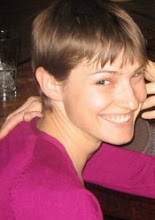David Mitchell's Cloud Atlas must be acknowledged as a complex example of contemporary literary fiction. At moments the reader is bowled over by the impressive technical skill with which Mitchell creates multiple distinct worlds and languages with a sprezzatura that Castiglione would have envied and admired. At others, however, the bottom of the reading experience falls out, and the reader wonders whether Mitchell writes in good faith.
The question of faith can be focused through a single moment in the text when Robert Frobisher, an aristocratic musician and n'er do well writes to his honorable lover and friend, Sixsmith, a description of his musical magnum opus:
Spent the fortnight gone in the music room, reworking my year's fragments into a "sextet for overlapping soloists": piano, clarinet, 'cello, oboe, and violin, each in its own language of key, scale, and color. In the first set, each solo is interrupted by its successor: in the second, each interruption is recontinued, in order. Revolutionary or gimmicky? Shan't know until it's finished and by then it'll be too late. (445)
The description of Frobisher's "revolutionary or gimmicky" composition corresponds with the structure of Mitchell's novel, which has six (nominally) "overlapping solo[]" narratives, "each in its own language." Each narrative is "interrupted" only to be returned to in a second "set."The structural parallels invite the application of Frobisher's devil may care attitude onto Mitchell himself, as an author caught up in the madness of creation, disconnected from any responsibility to an audience's reception.
You may (justly) ask who is to say that an author has some deep responsibility of this kind, to which I would answer that what I think is irrelevant, but that Mitchell himself thematizes this responsiblity in his Sinclair-esque closing (but inconclusive) diatribe. The last pages of the novel see the radicalization of one Adam Ewing, a 19th century American notary who has just undergone a harrowing murder attempt. He declaims, "Belief is both prize and battlefield, within the mind & in the mind's mirror, the world. If we believe humanity is a ladder of tribes, a colosseum of confrontation, exploitation & bestiality, such a humanity is surely brought into being... [However] [i]f we believe that humanity may transcend tooth & claw, if we believe divers [sic] races & creeds can share the world as peaceably as orphans share their candlenut tree, if we believe leaders must be just...such a world will come to pass" (508). Mitchell has thus ended his book that has lovingly detailed the ultimate destruction of human civilization with a plea for the importance of influencing the mind with positive ideas about life and humanity in order to create a civilization of justice and peace. The concern I raise is not so much one of literary ethics (although I admit that I do tend to believe that we could all use more positive images in fictional representations of all types) but of consistency and thoughtfulness.
Of course, my overall impression was certainly affected by my increasing disdain for the pseudo-profundity of the title and the annoyingly useless trope of the comet birthmark shared (absurdly and to no real end) by the characters, and thus I might lean more heavily on this closing inconsistency than I otherwise might. The novel is one that impresses, and at times rivets. I would recommend it as an interesting if not perfect piece of experimental fiction.
Subscribe to:
Post Comments (Atom)




1 comment:
What a thoughtful and in depth review...and you've given me some grist to chew upon. I read this book a few years ago, and and first was totally bored, but once I got into it, I really loved it.
Here's my review, if you're interested. I found you through the Read'N'Review Challenge.
http://jellyjules.com/?p=676
Post a Comment